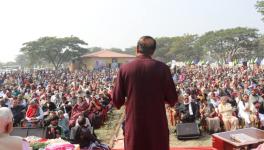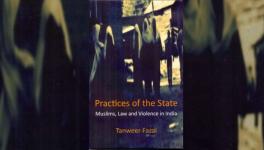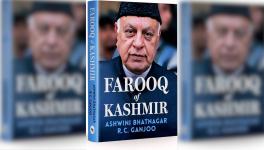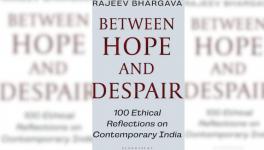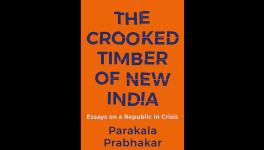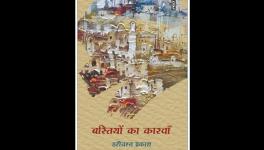Book Review: A Slice of Embezzlement in Dhaka
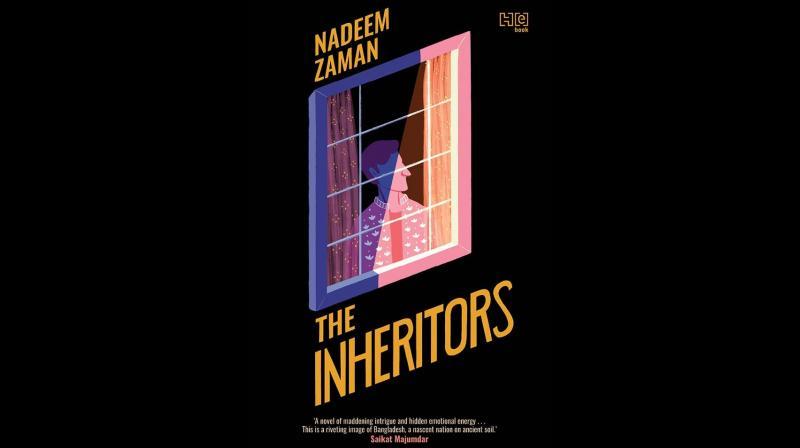
Image courtesy: The Asian Age
In recent years, the news cycle has often thrown up tycoons fleeing India after embezzling funds from public sector banks and taking refuge in developed nations. These crony capitalists are not unique to India but a phenomenon across South and East Asian ex-colonial states. The fleeing tycoons still exercise a measure of control over their countries from afar. This is the abiding theme of The Inheritors, Bangladeshi-origin novelist Nadeem Zaman’s second novel.
Qurratulain Hyder’s 1979 Urdu novel, Aakhir-e-Shab ke Humsafar [Fireflies in the Mist, 1984] explored the growing tensions between the Hindus and Muslims of erstwhile East Pakistan from the 1930s onward and the struggle for independence. While the creation of Bangladesh evokes memories of unspeakable atrocities against Bengali Muslims by the homogenising Punjabi and Urdu-speaking majoritarian forces, a similar fate soon befell the Urdu-speaking Bangladeshis. And the “Bihari” muhajirin are still among the most unfortunate stranded non-citizen groups—a record beaten by the Rohingya’s misfortunes in recent years. With fearless passion, Ghulam Sarwar wrote in 1971 in his popular Urdu daily, Sangam, published from Patna, about the concerns of Bihar’s Muslim migrants in Dhaka. And Abdus Samad’s Urdu novel, Do Gaz Zamin, 1988 [Two Yards Land; metaphor for a grave], also depicted the tribulations of Dhaka’s Urdu-speaking people.
The creation of Bangladesh in 1971 evokes a memory of unspeakable atrocities perpetrated against the Bengali Muslims, by the majoritarian and homogenising Punjabi and Urdu-speaking forces from what was then western wing of Pakistan. A most apt depiction of those horrors is in the 2014 movie, The Bastard Child, the theme of Zaman’s first novel, In the Time of the Others (2018). Faraar [Escape], Divan Birender Nath Zafar Payami’s 1986 Urdu novel is a better known work of fiction on the theme.
But the backdrop of The Inheritors is firmly in the post-Independence era, and based on the life of just one powerful family. The narrator Nisar Chowdhury returns to Dhaka from Chicago in the United States, where his family had relocated decades back, to liquidate ancestral properties and deposits—and write about Dhaka. In doing so, he ventures into mists of deceit, friendship, betrayal, and the dark side of the family. The novel is unusual for it has neither picturesque descriptions nor lays its characters’ emotions out to dry. It lets readers comprehend and interpret them, without keen observations to prod them in any direction.
The mutual rivalries, jealousies and treacheries that make family intriguing and reveal the fate of a business-minded clan leave no hero or villain in their wake. Characters in The Inheritors change, and their wrongs blur with time. The distinction between good and evil gets hazy and complicated. Zaman has experimented in his slim novel by issuing no judgemental commentaries or psychoanalytical explanations for the behaviour of his characters. Like in a short story, layers of meaning reveal themselves in the last two pages. A reader must unpack the novel long after finishing reading it. Yet, since it lacks knowledgeable-sounding descriptions, the book is interestingly light.
The novel depicts a contemporary Dhaka society where wrongdoers find numerous defenders and supporters, as in any modern South Asian city today. Rather than call out fraudsters, members of society in The Inheritors find ways to blame the victims, unburdening readers of the moral and psychological responsibility to build resistance.
Urban life in Dhaka, concentrated on the Chowdhury clan and those close to it, includes parties, clubs, and pleasure trips of its members. The wine flows freely, there are weekend trips to Bangkok, and women mix freely with men. Some indulge in affairs out of sheer boredom before and after marriage. Dissolutions and remarriages are inevitably frequent. Francis Fukuyama says in Great Disruption that the triumph of capital would inevitably make family fragile and many readers would relate to the elite Muslims in this book. They seem to share no common ground with traditional regional Islamic cultural practices. The characters—partly fictional, partly drawn from the life of the novelist—are hardly conscious of their religious identity. They worry about growing religious fanaticism but try to make sense of it in debatable ways. The narrator says, “America believed it was collectively attacked on 9/11, and the attack deserved nothing short of visiting collective retribution on the perpetrator—Islam—which required huge doses of patriotism that could be shown only through vengeful love of country.”
The characters indulge in intra-family intrigues, jealousies and rivalries to the extent of taking lives, but the façade of family ties is always on display. Meanwhile, being rich scammers, they thrive on money swindled from public banks and focus on amassing more wealth, but little else. They have spent three decades in Chicago, but their grip on the narrative ‘back home’ is firm—the story in Dhaka is not that the Chowdhurys robbed the public of its wealth, but that their factotum, Ehsan Kibriya, is the villain behind the family’s misdeeds.
The second most important male character, Junaid Ghazi, is from a neo-rich trading family who has set his eyes on the historic Eternity Complex, the Chowdhury’s residence in Dhaka. He enlarges his status with his marriage to Nisar’s cousin Disha Chowdhury, “an elegant, sharp, independent, radiant” woman. But a reader would get the impression that Ghazi—outsider to the clan—is the other villain of the piece. He exemplifies “the mysterious co-existence of opposing forces in one single being…more innocent than the eye at first could see”, a trait that eventually transforms him into prey.
Despite their “damaged reputation”, the Ghazis never left Bangladesh or Dhaka. They stayed, battled, and prospered, accumulating wealth and name—fame alongside infamy. For those who grumble or cry foul that the Ghazis “own” Dhaka, Nisar says, “I wouldn’t know which to agree with, which to deny.” And therein lies the catch. More than the visible neo-rich living in Dhaka, the city’s wealth—via its Ghazis and Kibriyas—is still practically owned by the invisible historically powerful elites who have relocated to other countries.
Nisar puts a premium on those who stayed on than those who ran away to developed countries seeking more comfort and luxury. While returning to Chicago, he rationalises, “...home isn’t just one thing. It isn’t a country, a city, or a place of dwelling. Home is a going away, contained in loss, obscured by the brushstrokes of memory.”
But whose claim of inheritance over Dhaka is more legitimate—Nisar seems to place a sentimental premium on those who stayed rather than left. But living in Dhaka, Ghazi had to deal wit`h “friends and detractors alike”. Both took him apart, for better and worse, making him the “quintessential survivor” until his death. Thereafter, Disha reunites with her in-laws, practically inheriting the wealth the Chowdhurys had spread beyond their immediate clan. Through her, after Ghazi, the Chowdhurys return to lording over Dhaka, like VS Naipaul said in Guerrillas—“Those who have won will win every war.”
The Inheritors is a powerful novel, a slice of life in Dhaka that interrogates the patriotism and nationalism its non-residents parade abroad. It exposes the rich and powerful elites of the former colonies, especially their murky remote control over their native country.
The author teaches modern and contemporary Indian History at Aligarh Muslim University. The views are personal.
Get the latest reports & analysis with people's perspective on Protests, movements & deep analytical videos, discussions of the current affairs in your Telegram app. Subscribe to NewsClick's Telegram channel & get Real-Time updates on stories, as they get published on our website.










